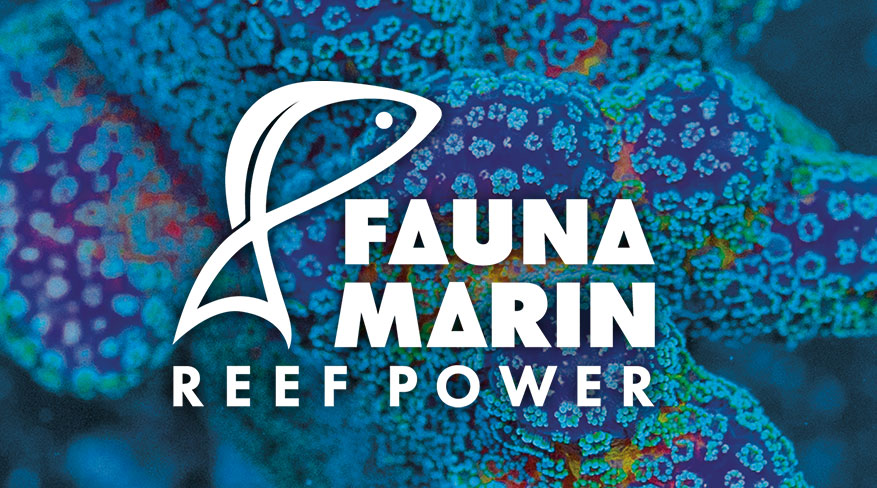I have a Britta filter and i poured a bunch into a kettle and boiled it. Then I tested it for chlorine and there's zero chlorine in it. The non boiled Britta water does test positive chlorine . So what's the deal? Why can't we use boiled Britta tap-water for our reef tanks?
Navigation
Install the app
How to install the app on iOS
Follow along with the video below to see how to install our site as a web app on your home screen.
Note: This feature may not be available in some browsers.
More options
You are using an out of date browser. It may not display this or other websites correctly.
You should upgrade or use an alternative browser.
You should upgrade or use an alternative browser.
my boiled tap water has no chlorine so…??
- Thread starter Ballyhoo
- Start date
- Tagged users None
WalkerLovesTheOcean
"Just keeps swimming!"
View Badges
Catskill Reef Member
Hospitality Award
518 Reefers
Rock Pool Reef Keepers
My Tank Thread
My Aquarium Showcase
No one says you can't. In my opinion RO/DI filters are more reliable. There still could be other things in the water that you are unaware of. Test for TDS.
Because there are other things boiling and Brita don't get rid offI have a Britta filter and i poured a bunch into a kettle and boiled it. Then I tested it for chlorine and there's zero chlorine in it. The non boiled Britta water does test positive chlorine . So what's the deal? Why can't we use boiled Britta tap-water for our reef tanks?
No chlorine is good, but do you know how much Calcium, lead, or any other chemicals they are in it? RO water allows you to start with simple water, and nothing else. You then add the salt and you know you have good water for the animals.I have a Britta filter and i poured a bunch into a kettle and boiled it. Then I tested it for chlorine and there's zero chlorine in it. The non boiled Britta water does test positive chlorine . So what's the deal? Why can't we use boiled Britta tap-water for our reef tanks?
*RODIRO water allows you to start with simple water, and nothing else.
If you want to test it out for us, that will be great.
rodi water is proven to provide good long term results (I'm talking about decades), so I go with the tried and proven method.
rodi water is proven to provide good long term results (I'm talking about decades), so I go with the tried and proven method.
You don't have to boil it. The Brita filter will also remove the chlorine. Depending on whats in your tap water, you could use the brita. But you will have to change a lot of filters to do a water change.
no, the Brita did not remove the chlorine unless boiled. I tested that. I thought it was chlorine was the main reason why we can't use tapwater. What would be the second and third chemicals we would want to test for in our tapwater to see if boiling would be OK? The whole ro-di water " is preferred". " is reliable," is not really scientific. and it's OK if you wanna say hey dude do whatever you want. Don't listen to us, but I'm trying to approach this scientifically here without sentiment. Because yeah sure ro di water is preferred but there's gotta be a reason, specific chemicals. Is it fluoride ? what else? because you know what, maybe in some circumstances for some municipalities boiled water would be OK. Maybe not. But there's gotta be a way to measure, rather than being sentimental and loyal to one culty method.You don't have to boil it. The Brita filter will also remove the chlorine. Depending on whats in your tap water, you could use the brita. But you will have to change a lot of filters to do a water change.
The chlorine is put into the atmosphere in boiling water. The reason not to use boiled water would be for a couple reasons.I have a Britta filter and i poured a bunch into a kettle and boiled it. Then I tested it for chlorine and there's zero chlorine in it. The non boiled Britta water does test positive chlorine . So what's the deal? Why can't we use boiled Britta tap-water for our reef tanks?
1. It seems to be a waste of energy, when one can buy a simple dechlorinator rather than boiling water..
2 It seems to be a waste of time for little or no benefit? - tank water does not need to be sterile (replacement water)
3. There is a small chance of metal toxicity or another chemical if it's a non-stick pan.
4. Using topwater, depending on the type of pipes in your house - can result in copper levels (though small)
5. It solves the issue when for no reason your water utility changes what they are doing - adding more chlorine or adding chloramine temporarily, etc.
6. using topwater successfully (and it can be) should only be considered in areas with insignificant metals
A simple Britta filter would be better than 'nothing' - but not as good as RODI - but again the largest percent of why or why not is #6 - the actual make up of the water coming out of your tap
Copper is one of the main ones since it can kill inverts (including corals), but really there are a bunch of things that could be in tap water which could poison a tank.no, the Brita did not remove the chlorine unless boiled. I tested that. I thought it was chlorine was the main reason why we can't use tapwater. What would be the second and third chemicals we would want to test for in our tapwater to see if boiling would be OK? The whole ro-di water " is preferred". " is reliable," is not really scientific. and it's OK if you wanna say hey dude do whatever you want. Don't listen to us, but I'm trying to approach this scientifically here without sentiment. Because yeah sure ro di water is preferred but there's gotta be a reason, specific chemicals. Is it fluoride ? what else? because you know what, maybe in some circumstances for some municipalities boiled water would be OK. Maybe not. But there's gotta be a way to measure, rather than being sentimental and loyal to one culty method.
Looking at San Diego's most recent water quality report, it doesn't look like their water is too bad, but as two examples from their report of why you might not want to use tap water:
1 ) 90% of houses tested had under 0.4 ppm of copper (so 10% had more than that); the lowest they would report is 0.05 ppm or higher.
For context of how much harm 0.05-0.4 ppm of copper can do to inverts, 0.02 ppm can kill some inverts (reportedly including corals) - in fact, 0.002 ppm (A.K.A. 2 ppb) is enough to kill certain inverts.
For reference, 1 ppm = 1 mg/l:
Here's some actual data for what I consider to possibly be the most serious problem with tap water: copper.
New York City Water report for 2022.
Section titled" Lead and Copper Rule Residential Tap Sampling"
356 residential taps were tested.
10% of them had more than 0.194 ppm copper (194 ug/L)
the highest had 3.2 ppm copper
Thus, IMO, for copper alone, the tap water in NYC is unsuitable for at least 10% of the folks living there.
While I do not really have a good understanding of exactly how much copper is OK, Fauna Marin says that ten fold lower values (0.02 mg/L= 20 ug/L) can kill some corals.

Copper - Fauna Marin
www.faunamarin.de
Yeah, I haven't looked into corals and copper toxicity much, but I have looked into inverts and copper toxicity a bit and 0.02 mg/L seems about right (for the first quote below, the water quality report was for Oceanside, California, and the numbers used were mg/L):
The "Report of Detected Compounds" at the bottom:
- Looking at the copper specifically, they mention the 90th percentile for 50 homes sampled was 0.245 (this means that 90% of the 50 homes tested had copper levels of 0.245 or lower);
- The testing they use for copper is only sensitive to 0.05.
- LC50 for Copper when tested on different inverts* (a mussel species, an oyster species, a copepod species, and two urchin species - one of the urchins was the sand dollar you have; a different test** used a limpet, a crab, and a mussel) ranged from ~0.002 to 0.2 (LC50 being a toxicology term for the dose needed before half of a given population dies from the toxin); the LC50 varies from one species to the other, and it varies dependent on a number of different factors (such as the bioavailability of the form of copper in the water).
Personally, just looking at the odds of getting a damaging to lethal level of copper in your water, I wouldn't use your water without DI.
*Test Report 1
**Test Report 2

Differential sensitivity of three marine invertebrates to copper assessed using multiple biomarkers - PubMed
Understanding how biomarkers relate to each other on exposure to particular contaminants in different species is key to their widespread application in environmental management. However, few studies have systematically used multiple biomarkers in more than a single species to determine the...pubmed.ncbi.nlm.nih.gov
2 ) Total ammonia (Ammonia as Nitrogen) ranged from 0.25 to 0.98 ppm, averaging ~0.62 ppm between the three treatment facilities. So right out of the tap, you would meaningful amounts of ammonia in your water.It depends on the rainwater, but - given how sensitive inverts are to copper - I wouldn't assume so. To quote the top link below, "copper was above the ADWG (2.0 ppm) in eight samples out of 365 samples," (ADWG meaning Australian Drinking Water Guidelines) - 2.0 ppm may not seem like much, but it is substantially higher than the ~0.002 to 0.2 ppm LC50 of Copper.

Lead, Zinc, Copper, and Cadmium Content of Water from South Australian Rainwater Tanks
Rainwater is consumed for drinking water in many parts of Australia, either preferentially over municipal water or in regional or remote areas, because rainwater is the primary source of water. Previous rainwater studies in other areas in Australia have ...www.ncbi.nlm.nih.gov
I agree - but just saying - the OP may be interested - there was a long thread about using tap water for topping off. I can't find it currently.If you want to test it out for us, that will be great.
rodi water is proven to provide good long term results (I'm talking about decades), so I go with the tried and proven method.
Depending on the levels - it may or may not (my gut feeling is that it's not good enough). "The Brita Standard and Elite filters are both certified for the reduction of aesthetic chlorine under NSF/ANSI 42, meaning that they should remove chlorine to levels low enough so they do not cause taste and odor problems in your drinking water. Brita filters are not certified to reduce chloramines."You don't have to boil it. The Brita filter will also remove the chlorine. Depending on whats in your tap water, you could use the brita. But you will have to change a lot of filters to do a water change.
I agree - but just saying - the OP may be interested - there was a long thread about using tap water for topping off. I can't find it currently

Has anyone tried a long term experiment using tap water vs RODI water for a reef tank?
One of the first things you hear when you get into saltwater is that you should ONLY use RODI water. It's so pervasive that I don't know anyone that doesn't use RODI water (granted I don't know a lot of reefers). On the other hand, virtually no one uses RODI water in freshwater tanks. Forgive...
 www.reef2reef.com
www.reef2reef.com
You need to test TDS - thats correct - however, more importantly is/are various toxin levels/metals/etc. For example a TDS of 3 if the "dissolved solid" is sodium/chloride is not an issue. If it's cupric chloride, over time - that COULD be a problem. etc - obviously - the higher the TDS the more risk for an unwanted issueYou need to test TDS to determine the usability of that water in a reef tank. I’m guessing you’ll get much higher than the desired TDS of zero.
Last edited:
This is the way.No chlorine is good, but do you know how much Calcium, lead, or any other chemicals they are in it? RO water allows you to start with simple water, and nothing else. You then add the salt and you know you have good water for the animals.
That's it, I'm starting the cult, lolBut there's gotta be a way to measure, rather than being sentimental and loyal to one culty method.
RODI is as "culty" as using laundry detergent to wash your clothes. Sure, you could use vinegar instead, but why shame the majority that uses the better product?
well, as usual, if it were practical everybody would be doing that. So that answers that.Depending on the levels - it may or may not (my gut feeling is that it's not good enough). "The Brita Standard and Elite filters are both certified for the reduction of aesthetic chlorine under NSF/ANSI 42, meaning that they should remove chlorine to levels low enough so they do not cause taste and odor problems in your drinking water. Brita filters are not certified to reduce chloramines."
I have another problem. My blue damsels I thought were sweet fish, but they're terrors. and I got a brand new fire shrimp, and they tore it to shreds in a day. I met somebody at LFS He was telling He has 40 in this 100 tank and I thought I can have 4 in my 40. Now I'm doomed.
One thing I noticed no one mentioned that a good RO/DI system would remove but I am not sure brita would do anything about is the presence of silicates in your tap water and the resulting issues that will cause.
Silicates are actually good and a lot of old timers dose silicates to keep Dino’s at bay to run low nutrient systems.One thing I noticed no one mentioned that a good RO/DI system would remove but I am not sure brita would do anything about is the presence of silicates in your tap water and the resulting issues that will cause.
Similar threads
- Replies
- 31
- Views
- 812
- Replies
- 3
- Views
- 184
- Replies
- 20
- Views
- 564
- Replies
- 5
- Views
- 171
- Replies
- 10
- Views
- 288














